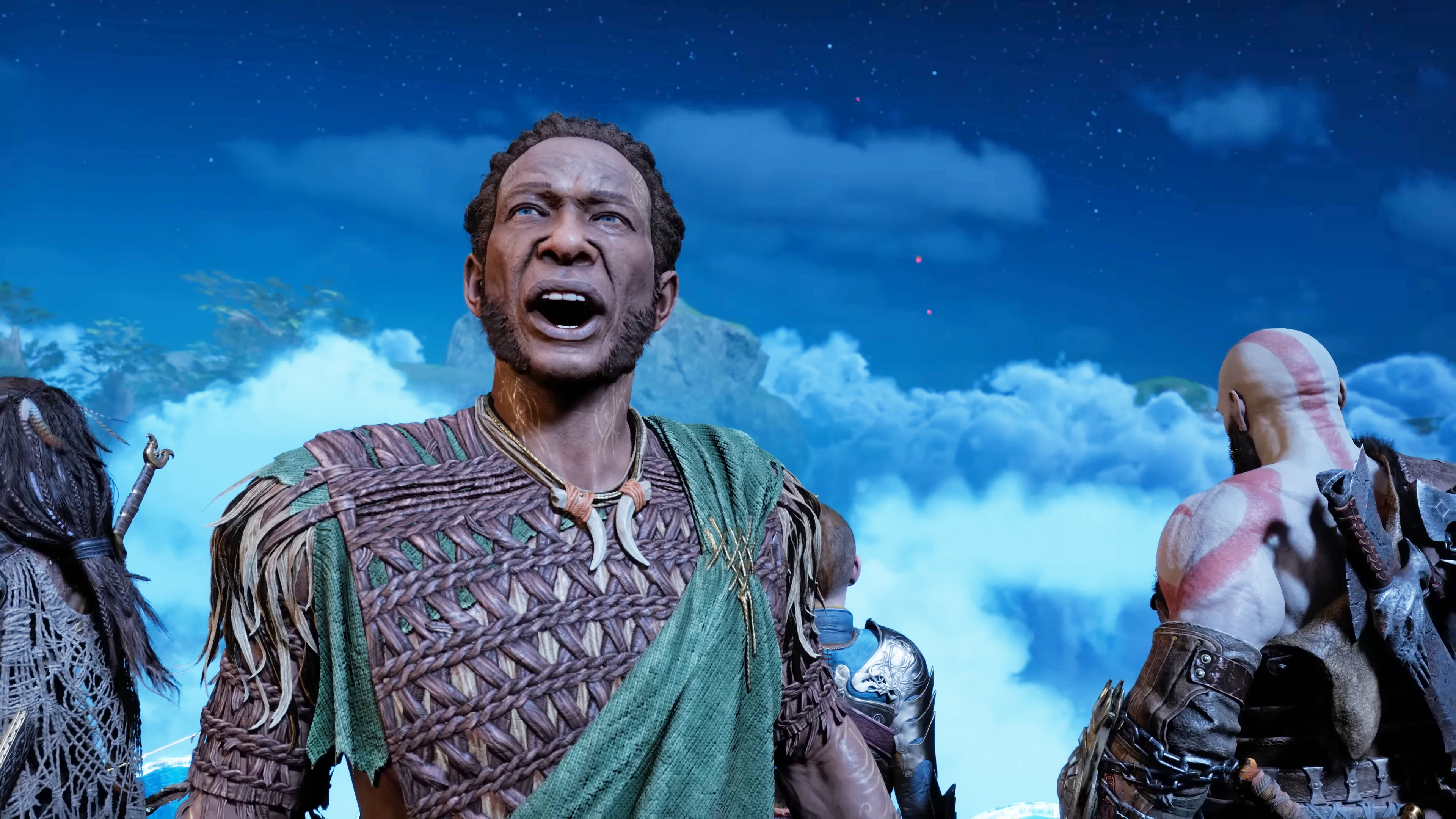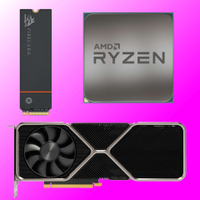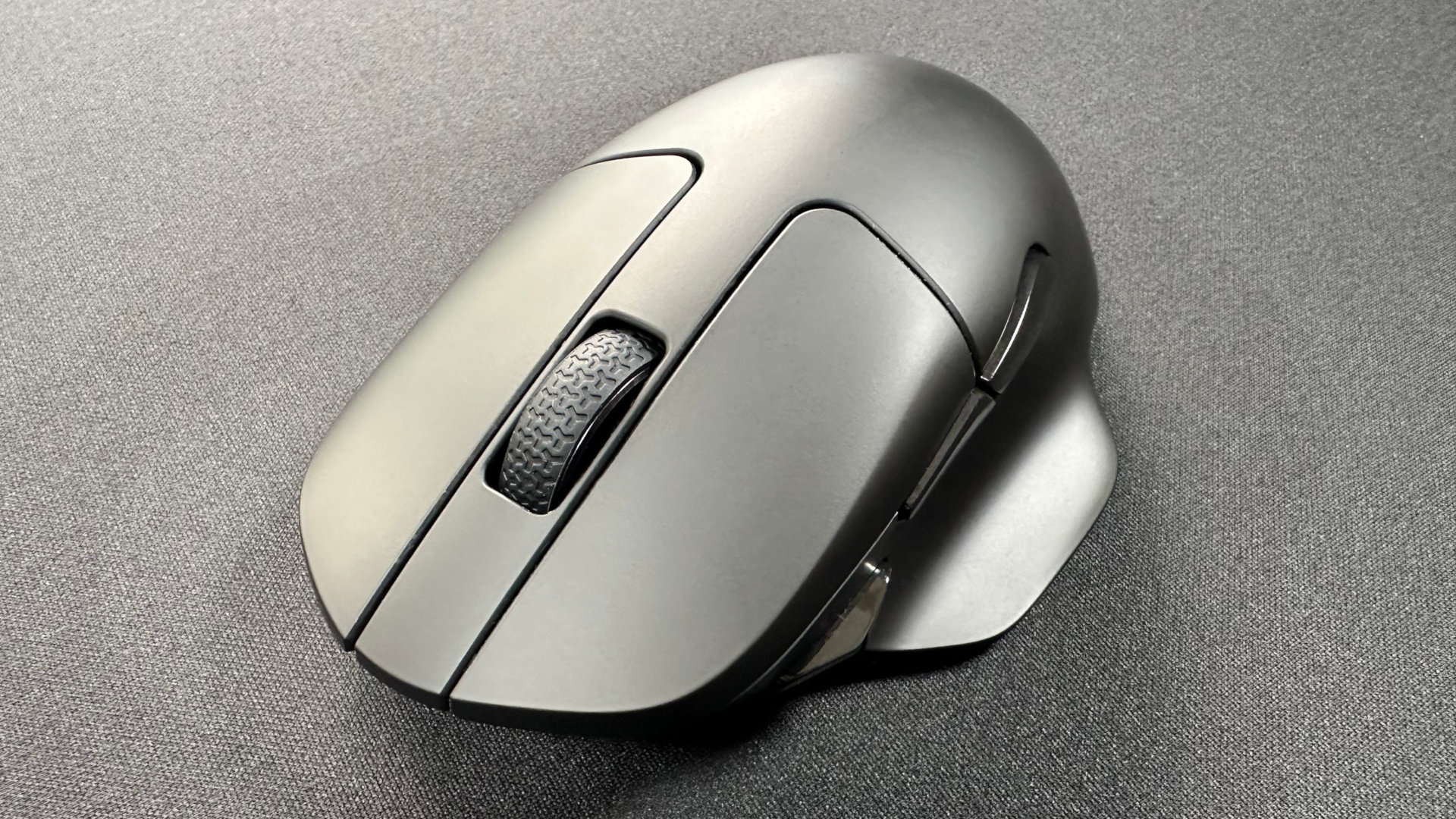God of War Ragnarök needs a chonky 190 GB of SSD space but the rest of the system requirements seem pretty reasonable
Kratos likes a roomy enclosure, it seems.

If you're planning on hosting Kratos and Atreus in the great halls of your SSD when God of War Ragnarök releases on September 19, you'd better start making some room. While the system requirements don't look all that taxing overall, you'll need a massive 190 GB of available space to fit in all those Gods, and presumably a fair bit or warring, too.
The good news is that, according to the specs sheet, all these metrics are given at native resolution with no upscaling employed. That being said, the PC port trailer has promised a plethora of upscaling trickery from all the major players (along with super ultrawide support), so you'll be spoilt for choice if you do need a bit of a helping hand meeting the specs.
DLSS 3.7, FSR 3.1 and XeSS 1.3 are all supported, so no matter your graphics card choice you're sure to find something suitable for a modern GPU—although as I found recently, you should probably stick to DLSS if you have the option over the latest FSR release.
Still, Kratos has made his judgement, and he's decided that you'll only need an Intel i5 4670K or AMD Ryzen 3 1200 to meet minimum specs, along with a GTX 1060 or RX 5500 XT. The GTX 1060 appears to still cling on in many modern game requirements, although this sort of spec will only get you a 30 fps average at Low settings.
Moving up the sheet, 1080p 60 fps at Medium settings will require an Intel i5 8600 or AMD Ryzen 5 3600 along with an RTX 2060 Super or RX 5700, while 1440p High at 60 fps needs an RTX 3070 or RX 6800. Reasonably demanding on the GPU then, although it must be said that the game does look pretty fabulous in what we've seen so far.
| Row 0 - Cell 0 | Minimum | Rec. | High | Perf. | Ultra |
| Settings | 1080p @ 30 fps Low settings | 1080p @ 60 fps Medium settings | 1440p @ 60 fps High settings | 4K @ 60 fps High settings | 4K @ 60 fps Ultra settings |
| GPU | Nvidia GTX 1060 or AMD RX 5500 XT | Nvidia RTX 2060 Super or AMD RX 5700 | Nvidia RTX 3070 or AMD RX 6800 | Nvidia RTX 3080 Ti or AMD RX 6900 XT | Nvidia RTX 4070 Ti or AMD RX 7900 XT |
| CPU | Intel i5 4670K or AMD Ryzen 3 1200 | Intel i5 8600 or AMD Ryzen 5 3600 | Intel i7 7700K or AMD Ryzen 7 2700X | Intel i7 7700K or AMD Ryzen 7 2700X | Intel i5 11600K or AMD Ryzen 7 3700X |
| RAM | 8 GB | 16 GB | 16 GB | 16 GB | 16 GB |
| OS | Windows 10 64-bit | Windows 10 64-bit | Windows 10 64-bit | Windows 10 64-bit | Windows 10 64-bit |
| Storage | 190 GB SSD | 190 GB SSD | 190 GB SSD | 190 GB SSD | 190 GB SSD |
Above that is where things get a little odd in the categorisation. Above High is Performance, which apparently equates to 4K 60 fps high settings, while Ultra is 4K 60 fps, err, Ultra.
For Performance, the GPU spec jumps significantly to the RTX 3080 Ti and RX 6900 XT, while Ultra demands an RTX 4070 Ti or RX 7900 XT. Shouldn't come as too much of a surprise that at 4K, I suppose, and again there's always upscaling to push those frames up to the stratosphere.
Keep up to date with the most important stories and the best deals, as picked by the PC Gamer team.
Still, I can't quite get over that 190 GB storage requirement. The original God of War PC port asked for a much more reasonable 70 GB, although as I understand it God of War Ragnarök is a bigger game in general, with a lot of fancy hi-res textures and other graphical bells and whistles.
Time to start uninstalling some hangers on in your library, I reckon, or perhaps time to invest in a bigger SSD to take some of the anxiety out of shuffling around your huge game installs. It's not just me that feels a slight tug in the stomach every time I see my free SSD space drop significantly is it? Screw the horrors of the Norse realm, it's a dwindling GB number and a chonky used space indicator that really gets my heart pumping.
Best CPU for gaming: Top chips from Intel and AMD.
Best gaming motherboard: The right boards.
Best graphics card: Your perfect pixel-pusher awaits.
Best SSD for gaming: Get into the game first.

Andy built his first gaming PC at the tender age of 12, when IDE cables were a thing and high resolution wasn't—and he hasn't stopped since. Now working as a hardware writer for PC Gamer, Andy's been jumping around the world attending product launches and trade shows, all the while reviewing every bit of PC hardware he can get his hands on. You name it, if it's interesting hardware he'll write words about it, with opinions and everything.


